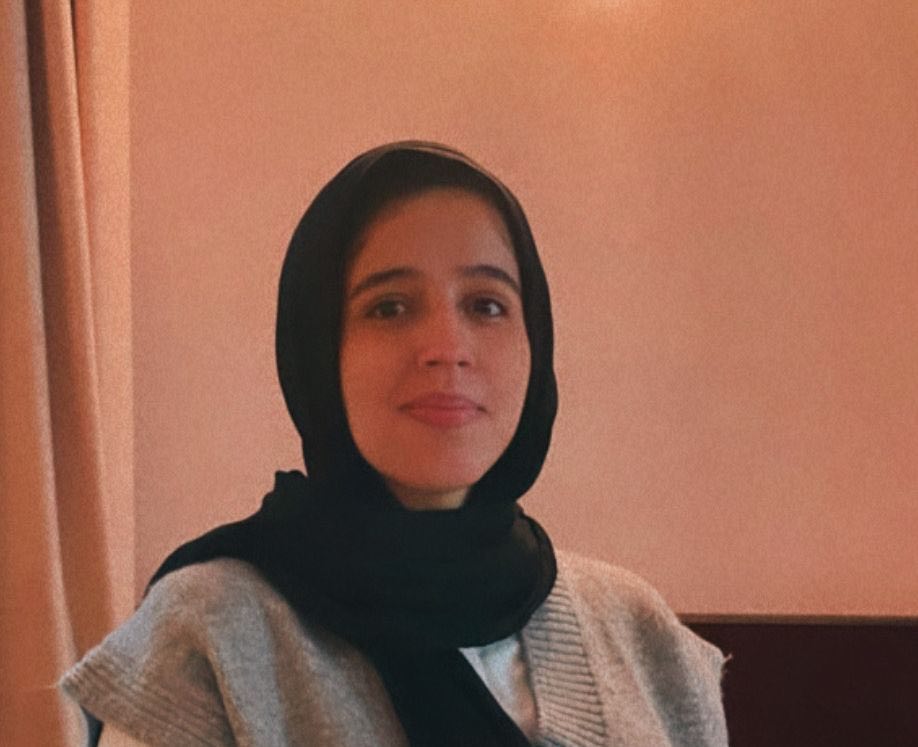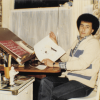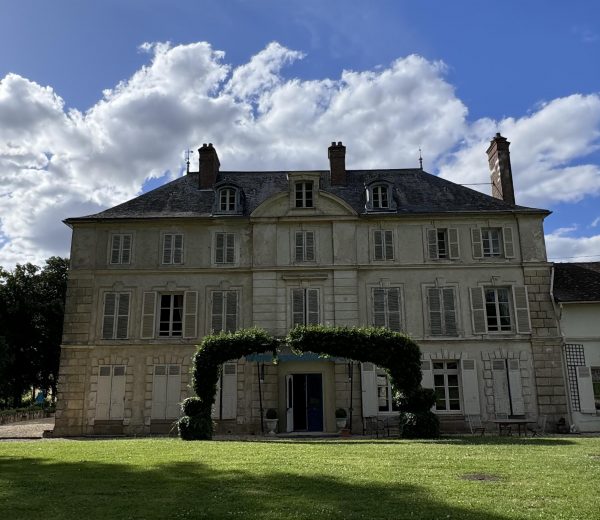Writing is one of the most expressive tools one can use to describe and let out emotions. There is a special way of writing that can add depth to our thoughts and ideas. I once read ‘’ “If something is worth hearing or listening to, it’s very probably worth reading”. It gives the chance to so many to tell the unspoken. From personal stories, biographies, fiction, and non-fiction and the list go on and on.
Libyan writers, especially, female writers are part of this story. From the first female Libyan novelist, Mardiya Naas to Sharifa El-Geyadi, Nadra El-Aweiti, and Fawziya Shalabi. They have contributed greatly to the literary scene with their remarkable work and have managed to spread their creativity in Libya and beyond.
They have paved the way for others to write and express and in this article, I am sharing the story of an amazing writer, Kawther Al-Jahmi, on her journey as a novelist after publishing her book last year but the story unfolds beyond the published book and it is by far one of my favourite interviews since I embarked this journey last year.
Mrs. Kawther started her public adventure with writing with a username named ‘’the ordinary lady’’ and that is because she could not describe herself with any other title. She is a lady who is living in similar circumstances like thousands of Libyan women, she is a wife who appreciates the institution of marriage and a loving mother for her children. However, she dislikes showing her vulnerability in front of them. She used to be a teacher for some period of time in her life but she doesn’t know if she will continue to be one after all the suffering the field has been facing a year after year.
With all of this, if it wasn’t for writing, she would not have been known in the region. The victory of many Libyan women, the daily ones that have been occurring in silence, is considered to be ordinary if it is not compared with something seen to the public but she is still proud of her individual victories which are not less than her pride of writing and the love she has for it.
Her far memory of writing goes back to her days in high school, in the early 2000s. She wrote about Jerusalem and the Palestinian cause, stories, and thoughts. It comes after, Iraq after occupying her writings next to the Palestinian cause. Little by little, she dived into the world of short stories to social and romantic articles.
She published some of them in Arabic forums under the name ‘’Tripoli’s girl’’. She was heavily influenced by the Syrian writers Ghada Samman and Nizar Qabbani. In university, her style in writing took a different turn due to the books she read at that time. Writers can be very influenced by the books they read and they begin to pick up the writing style unintentionally.
In her last semesters in university, she took a break from writing, and then after, she got married. After a few years, she got back to writing after many of her friends encouraged her to do so. Later on, she started her own blog, even then, it never crossed her mind that she will write a book.
She participated in a local competition for short stories in the summer of 2017 and her story ‘’Al-Mahrousa 1785’’ won, her confidence in her writing increased and she then became part of ‘’Fasila’’ platform on Facebook which is dedicated to share the work of talented Libyans who write in both Arabic and English.
She started with this platform from the early launching phase and it was the beginning that she was bold enough to write her novel and increase the ceiling of her ambitions. She is thankful for every phase she went through as it wasn’t possible for her to be the person, she is today without going through all of those phases.
She told me when I asked her about the main source of inspiration for her and she said ‘’Many books, my friend, Malak. There are family, friends who believed in my pen but the main driver was the book, especially history and biography books.’’
Now comes the story behind her recent book ‘’A’edoun’’ or ”The Returning”. The idea of her book ‘’A’edoun’’ came up from the last line of the biography of Mrs. Rabab Adham, she is a pioneer in the Libyan educational sphere since the kingdom’s days. The concept of ‘’exclusion’’ with all of its complicated perspectives and dimensions.
However, the concept of the comings was the main core of this phenomenon in her novel. She felt doubtful of what she was writing, honestly, if her writing would open the doors of hell and let her face problems and struggles, she was not ready to face.
Because as she said ‘’Women in Middle Eastern/Oriental societies, the Libyan society in particular, when they pick up their pens to write, the general notion is that they would write a biography book, and people thought Mrs. Writing was writing her own story when she wasn’t!’’.
For example, the leading character in her novel was a woman who smokes and someone asked her if she was smoking too!! It was upsetting for her because they were indirect accusations as if she does not have enough creativity and imagination to write stories of imaginary characters even if they were inspired from the reality.
She was hesitant many and many times though her sister, Fathiya and Mrs. Kawther’s husband, and her friend Amira, pushed her to keep moving forward, they believed utterly in her and they believed in the beauty of the story, its originality, and its success.
Before the printing process, the novel’s concept was almost entirely written in her mind, a year prior to writing it. A year of research, imagining, videos, and old pictures of our history. What motivated her to put it in the process of writing is the competition announced by one of the leading publishing houses in the MENA region, Saqi Publishing house in Lebanon.
She wrote the first draft in three months and it took three more months for editing with the help of her friend. She then sent it to the publishing house and continued to edit it in three more months. She was so insisting to publish it even if it didn’t win and it eventually won!
Mrs. Kawther learned from her novel how to literally write one, educational articles only are not enough and the journey of writing a book differs greatly with every single detail. You have to go through the experience to know what writers speak about when they write novels, this is first, and second, she learned patience, a lot of patience as she described.
The process of writing a novel is a painful accumulative process, so much self-doubt is involved but you find yourself pushing forward to know more if your doubts are right or if they are just illusions! But writing in general, she learned to love, forgive, and to think with a thousand mind and mind.
She learned from writing to forgive herself first and that writers are not saints. That without her mistakes and self-struggles and excessive sensitivity, she might have not been able to catch the meanings and put them on paper in a serious manner.
The writing journey of her novel accompanied her pregnancy with her last child. It is as if the novel was born with him. She sent it to the publishing agency a day before her delivery date. The drafting process deprived her of the usual thinking of the C-section that she was about to have and she was deprived of thinking of her delivery supplies or even worrying about her health and her baby’s health.
She believes that it was a blessing she will always be thankful for especially the fall-back she had in her health three months before giving birth to her baby boy as she was still in the midst of writing her novel. Moa’nis is her fourth child and her novel was born with him therefore she considered it her fifth child. She hoped for her novel what she hopes for her children; people’s love and acceptance.
Speaking with her about her journey is very inspiring and heart warming because as a blogger, to get the opportunity to interview Mrs. Kawther gave me so much hope and it made me more proud of female writers in Libya and that we can actually write more and share our stories with the world.
She told me that women are great storytellers and a usual conversation in the kitchen is enough to create a novel. She has the spontaneous picked-up knowledge that enables her to write and create. On the opposite of men, women have to view their world and men’s world combined.
While many men are not able to understand women even if their houses were packed with them. She added, ”what we lack in Libya is confidence, female writers need confidence in their pens and to take the risk to publish and face the obstacles of the process with a high-held head and openness. Writing to closed drawers is not a real experience”.
Her final advice which means so much and I am sure this will resonate with so many readers:
‘’Dear female writers in Libya, write for writing, not for publishing. When you do so, you will get the opportunity at the right time to publish. Great writing will only be achieved by practicing and sacrifice of many drafts. Cover yourselves with a big ear-buds to stop anything from bringing you down, for example, those who say, Libyans don’t read, the situation is not suitable, writing is for those who have time, etc. For each of us, we have our own resistance mechanism and we need people in these circumstances to hold on to resistance, there is no alternative but going mad. Therefore, if your tool/source is writing then just write.’’
The Arabic text of her advice, I wanted to share it as it is since the interview was done in Arabic and for those who can read in Arabic will understand the beauty of the text:
عزيزاتي الكاتبات الليبيات، اكتبن للكتابة، لا للنشر، حين تفعلن ذلك ستحصلن على الفرصة المناسبة للنشر في الوقت المناسب، فالكتابة العظيمة التي تستحق النشر لن تتحقق إلا بالممارسة والتضحية بعديد من المسودات. غلّفن أنفسكن بسدادة أذن ضخمة أمام كل ما قد يثبط عزائمكن، على مثيلة: “الليبيين ما يقروش… الظروف ما تسمحش… الكتابة للناس الفاضية”… إلخ لكلّ منا وسيلة يقاوم بها، ونحن أحوج الناس في ظروفنا هذه للتمسك بالمقاومة، إذ لا بديل عنها إلا الجنون، إن كانت وسيلتك في ذلك هي الكتابة، فاكتبي.
Finally, I would like to thank Mrs. Kawther Al-Jahmi on her openness and all the emotions she transmitted through her answers, I am truly humbled by the opportunity and I am personally looking forward to reading more of your incredible work. You can follow her on Twitter on: kawtheraljahmi









